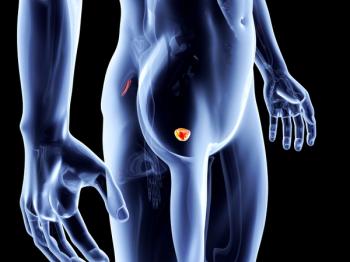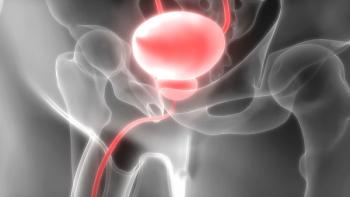
Oncology NEWS International
- Oncology NEWS International Vol 14 No 5
- Volume 14
- Issue 5
Obesity Is Linked to Greater Prostate Cancer Death Rates
ORLANDO-Being overweight or obese appears to adversely affect a man’s risk of dying from prostate cancer, according to a poster presentation at the 2005 Multidisciplinary Prostate Cancer Symposium (abstract 6). "Men who were overweight
ORLANDOBeing overweight or obese appears to adversely affect a man’s risk of dying from prostate cancer, according to a poster presentation at the 2005 Multidisciplinary Prostate Cancer Symposium (abstract 6). "Men who were overweight or obese before prostate cancer diagnosis were more likely to die of cancer than normal-weight men," said lead author Jing Ma, MD, PhD, assistant professor of medicine, Brigham & Women’s Hospital and Harvard Medical School.
Dr. Ma and her colleagues conducted a prospective survival analysis of prognostic body mass index (BMI) and prostate cancer mortality among participants in the Physicians’ Health Study.
They calculated BMI at baseline in 1982 and categorized participants into three groups: normal weight, which included men with a BMI of less than 25 kg/m2; overweight, those with a BMI from 25 to 29.9 kg/m2; and obese, those with a BMI equal to or greater than 30 kg/m2.
Among the 22,071 participants in the Physicians’ Health Study, 2,144 men developed prostate cancer and 233 died from the disease during a 21-year follow-up period. Dr. Ma analyzed mortality risk based on BMI, adjusted for age and smoking status.
Study Results
Overweight men had a 1.3 greater risk of death from prostate cancer, and obese men had a more than twofold higher risk of dying of prostate cancer, compared with normal-weight men.
Dr. Ma also assessed prostate cancer clinical stage at diagnosis for the three weight groups. She found that obese men had a higher proportion, almost twice as high, of metastatic disease than overweight or normal-weight men. Eleven percent of normal, overweight, and obese men had locally advanced disease at the time of diagnosis. Yet the overweight and obese men were twice as likely to die from the disease as normal-weight men.
"Overweight or obese men probably have some type of more aggressive cancer," Dr. Ma said. "Given our findings and other studies, it seems that obese or overweight men would not be at higher risk of getting the disease, but excess weight may promote progression of the disease."
Dr. Ma suggested that inflammation or hormones produced by fat cells could promote cancer growth. She does not think a delay in diagnosis explains the results of her study. She plans additional research to learn more about biological factors that could explain the increased risk of aggressive disease noted in overweight and obese men.
"Our study findings provide another reason to achieve and maintain a healthy weight," Dr. Ma said.
Articles in this issue
almost 21 years ago
Nomogram Helps Predict Prostate Ca Metsalmost 21 years ago
Three-Step Strategy Ups RRs in Poor-Risk Rectal Canceralmost 21 years ago
Sequential Chemo/Tam Improves Breast Cancer SurvivalNewsletter
Stay up to date on recent advances in the multidisciplinary approach to cancer.















































